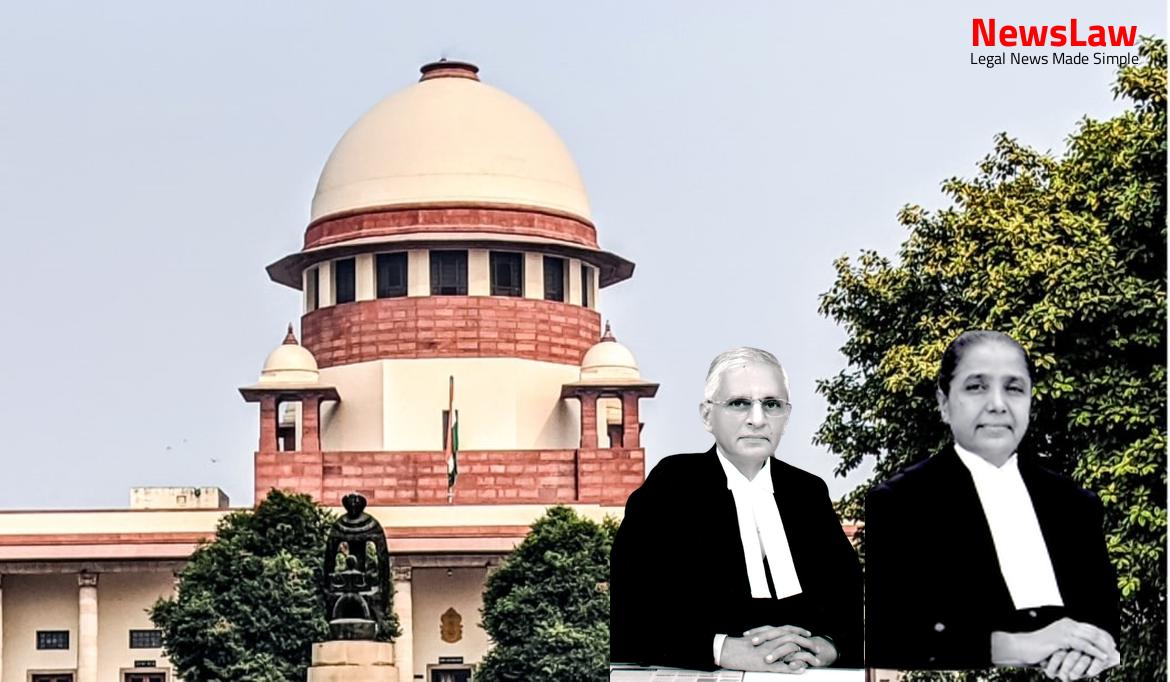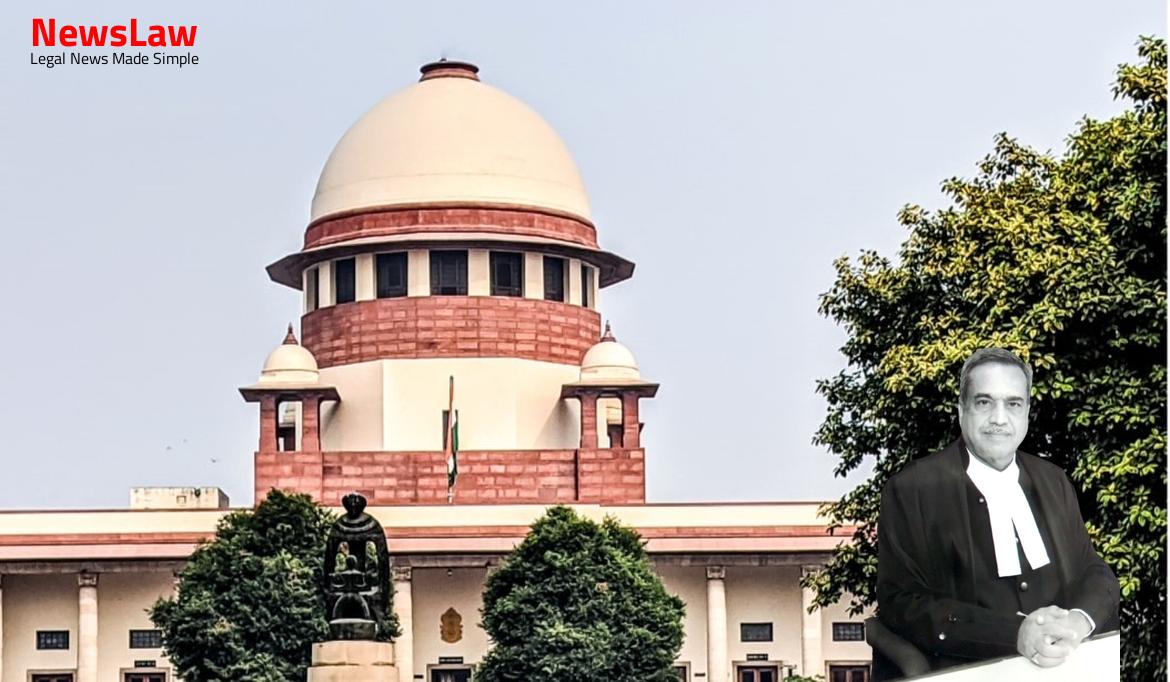Delve into the intricacies of the legal analysis conducted by the court regarding the exercise of pardon power under the Constitution. The case delves into the nuanced considerations involved in granting remission and provides insights into the scope of judicial review in such matters.
Facts
- The Appellant stands convicted under Section 302 read with Section 34 of the Indian Penal Code and sentenced to life imprisonment.
- An application for bail was rejected by the Court, but the Appellant was prematurely released in 2019 after completing 8 years of actual sentence and being above 75 years.
- The State Government responded that the premature release was in accordance with a policy decision granting special remission to certain categories of prisoners on Independence Day in 2019.
- The special remission criteria included age, completion of a certain portion of the sentence, good conduct, and absence of major jail offenses in the last two years.
- Exceptions to the remission were outlined, such as for prisoners sentenced to death, committing specific serious offenses, or having specific court orders regarding confinement.
- The remission policy applied to both life-sentenced convicts and convicts with other types of sentences, based on age and completion of a portion of the sentence.
Also Read: Legal Analysis on Arbitration Petition Limitation Period
Arguments
- The power of pardon is of great importance and must be guided by principles of constitutionalism
- Rules should be made for guidance in exercising the pardon power with a large residuary power for special situations
- The Court cannot accept the rigid contention that it cannot review orders passed by the Governor under Article 161 of the Constitution
- The appellant was on parole for a significant part of the time he was supposed to have been in jail
- The argument that orders under Article 72 or Article 161 are non-justiciable is resisted by the respondent counsel
Also Read: Analysis of High Courts’ Jurisdiction and Court Orders Under Article 142
Analysis
- The convicts under specific acts such as TADA, Official Secrets Act, Foreigners Act, Passport Act, Criminal Law Amendment Act, and certain sections of IPC are included in this specific part of the judgment.
- The sentence of imprisonment imposed in default of payment of fine will not be considered as substantive for the purpose of granting remission.
- The power under Articles 72 and 161 of the Constitution can be exercised by the Central and State Governments, not by the President or Governor on their own.
- The advice of the appropriate Government binds the Head of the State.
- Considerations for the exercise of power under Articles 72/161 may be myriad and their occasions protean, but no consideration nor occasion can be wholly irrelevant, irrational, discriminatory, or mala fide.
- The controlling factor in determining whether the exercise of prerogative power is subject to judicial review is not its source but its subject matter.
- The principles of Section 433-A of the Code do not and cannot apply to the exercise of constitutional power under Articles 72 or 161 of the Constitution.
- The exercise of power under Article 161 by the Governor must be based on objective and relevant considerations, not on personal whims or biases.
- Consistency, fairness, and lawful exercise of power under Articles 72 and 161 are essential for upholding the Rule of Law.
- The power under Article 161 is subject to judicial review on grounds such as exercise without proper advice, transgression of jurisdiction, lack of application of mind, malafide intent, or extraneous considerations.
- The Governor must reconsider cases in light of all relevant factors, such as the nature and impact of the crime, societal implications, and individual circumstances, before granting remissions.
- Governance according to law is paramount, and decisions on pardons, remissions, and commutations should be made with the welfare of society and public interest in mind.
- Human rights awareness must infuse institutional reform and search for alternatives.
- Section 433-A cannot forbid the method of infusing human rights awareness in institutional reform as it is protected by Article 161.
- The President or Governor, after reviewing the case records, can form an independent opinion on granting pardon or reprieve in appropriate cases.
- Observations in Maru Ram case emphasize the importance of clear guidelines for the exercise of pardon power, avoiding capricious criteria.
- The power under Article 72 and 161 of the Constitution is of wide amplitude and must be exercised fairly.
- Judicial review over the exercise of powers under Articles 72 and 161 is limited but not immune.
- Penological alternatives to closed prisons are favored for humane treatment of inmates.
- Executive clemency power should consider the impact on victims’ families, society, and set precedents for the future.
- The Governor or President must act according to the aid and advice of ministers in exercising pardon power.
- The exercise of power under Article 161 should involve fair consideration of individual facts and materials pertaining to each case.
- The Governor’s decision is subject to judicial review within the parameters set by the judiciary.
- A policy cannot override individual facts in granting benefits under Article 161.
- Legislative provisions like short-sentencing laws can enable release based on conviction timing.
- Remission and parole rules should be followed until replaced by a more comprehensive scheme.
- The wide power of executive clemency should not be restricted by self-imposed rules.
Also Read: Electoral Malpractices in Mayor Election
Decision
- Question of whether a policy can be framed under Article 161 of the Constitution for granting remission without case-specific material
- Consideration of whether such policy can override requirements under Section 433-A of the Code
- Direction to Registry to bring matter before Chief Justice for constituting a Bench to address these issues
- Appreciation for assistance from Mr. Shikhil Suri, advocate representing the Supreme Court Legal Services Committee
Case Title: PYARE LAL Vs. STATE OF HARYANA (2020 INSC 457)
Case Number: Crl.A. No.-001003-001003 / 2017



